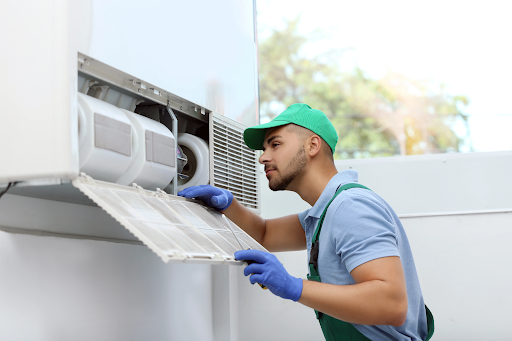Maintaining a comfortable and energy-efficient home largely hinges on a well-functioning HVAC system. For homeowners, understanding the ins and outs of HVAC service is crucial for ensuring that their heating, ventilation, and air conditioning systems operate optimally. This guide provides essential information about HVAC services, including the importance of regular maintenance and the considerations for furnace replacement.
Understanding HVAC Service
An HVAC (Heating, Ventilation, and Air Conditioning) system plays a critical role in regulating a home’s indoor climate. Regular hvac service is vital to keep this system running efficiently and to extend its lifespan. HVAC service encompasses a range of activities including inspections, maintenance, repairs, and system upgrades.
The Importance of Regular Maintenance
Regular maintenance is the cornerstone of an efficient HVAC system. Scheduled maintenance services, typically performed biannually (once in the spring and once in the fall), involve thorough inspections and cleaning of various system components. This preventive approach helps in identifying potential issues before they escalate into major problems.
Key maintenance tasks include:
- Filter Replacement: Air filters should be checked and replaced regularly to ensure proper airflow and indoor air quality.
- System Cleaning: Components such as the evaporator and condenser coils should be cleaned to remove dust and debris that can impact system efficiency.
- Inspection of Electrical Components: Technicians examine electrical connections and components to ensure safe and reliable operation.
- Checking Refrigerant Levels: Proper refrigerant levels are essential for the system’s cooling efficiency. Low levels can indicate leaks or other issues.
Regular HVAC maintenance not only improves system performance but also enhances energy efficiency, reduces operational costs, and prevents unexpected breakdowns.
Furnace Replacement
While regular maintenance can extend the life of an HVAC system, there comes a point when certain components, like the furnace, may need to be replaced. Furnace replacement is a significant investment and requires careful consideration.
Signs That Indicate Furnace Replacement
Several signs may suggest that it’s time for a furnace replacement:
- Age of the Furnace: Furnaces typically last between 15 to 20 years. If your furnace is approaching or exceeding this age range, it may be time to consider replacement.
- Frequent Repairs: If you find yourself frequently repairing the furnace, it might be more cost-effective to replace it rather than continue with repairs.
- Increased Energy Bills: A noticeable rise in energy bills could indicate that your furnace is no longer operating efficiently and may need replacement.
- Uneven Heating: If certain areas of your home are not heating evenly, it could be a sign of a failing furnace.
Choosing the Right Furnace
When it comes to selecting a new furnace, there are several factors to consider:
- Type of Furnace: The most common types include gas, electric, and oil furnaces. The choice depends on factors such as fuel availability and energy efficiency.
- Size and Capacity: An HVAC professional can help determine the appropriate size and capacity of the furnace based on your home’s size, insulation, and climate.
- Energy Efficiency: Look for furnaces with high Annual Fuel Utilization Efficiency (AFUE) ratings. Higher AFUE ratings indicate better energy efficiency and lower operational costs.
- Installation Costs: Consider both the cost of the furnace and the installation expenses. Professional installation is essential for optimal performance and safety.
Professional Installation
Proper installation is crucial for the efficient operation of a new furnace. A professional HVAC technician ensures that the furnace is installed according to manufacturer specifications and local building codes. Proper installation helps in maximizing energy efficiency, reducing the risk of malfunctions, and ensuring safe operation.
Conclusion
Understanding HVAC service and furnace replacement is essential for every homeowner aiming to maintain a comfortable and energy-efficient home environment. Regular HVAC maintenance helps in keeping your system running smoothly and avoiding unexpected breakdowns. When it comes to furnace replacement, recognizing the signs and making informed decisions about the type and size of the furnace can lead to long-term savings and improved home comfort.
Investing in regular HVAC service and timely furnace replacement not only enhances the efficiency and longevity of your system but also contributes to a more comfortable living environment. For the best results, always consult with a certified HVAC professional to address your specific needs and ensure that your HVAC system performs at its best.

Leave a Reply